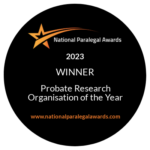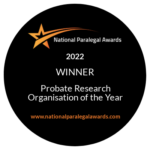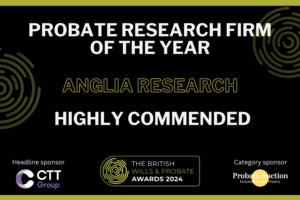How we can help
- We can help you to rescue a stalled regeneration project. We have a proven track record in finding the current legal owners of assets such as vacant buildings. By locating title-holders or their heirs, we regularly help local authorities bring land back into use or recover unpaid charges.
- We can help you get a property transaction back on schedule. We work for solicitors and their clients, locating proof of ownership so that house and land sales can proceed smoothly.
- We are not afraid to take on the most difficult cases. When a property does not appear on the Land Registry, we can often still help you to ascertain who owns it, and if it has any associated rights.
For a free initial consultation, please contact us. Learn more about our work in tracing property owners below.
Case operations manager Richard Turvey discusses a property repatriation case that allowed a major redevelopment to go ahead.
During the planning phase for a housing estate in Australia, the developers discovered that some of the land earmarked for use had been vacant for as long as anyone could remember. The local council was keen for the project to start – and prepared to make a compulsory purchase order, if only the owners could be found.
Eventually, the Australian authorities tracked down a title deed listing two Englishmen, Alfred and Henry Hardy, as the owners of the land. The deed dated back to the late 1800s and no amendments had been made since. It was at this point that Anglia Research was asked to identify the current legal owners.
Land and property repatriation involves finding the current owners of assets such as abandoned buildings and forgotten plots of land. It’s an area in which Anglia Research excels.
With only two names and an old address in Hampshire to go on, the Hardy case called for an understanding of historical context: in this instance, it helped that our researchers were aware that in the late 19th century the British army actively encouraged discharged soldiers to invest in land in overseas colonies.
In fact, records showed that Alfred and Henry had both served in the army.
In land and property repatriation cases the principal issue is the same as in probate research – to ensure that unclaimed assets reach their legal owners. However, there are differences. Legal titles to property are bought and sold, and so pass from hand to hand with no regard to family trees. Moreover, if the most recently named title holder has died, you may have to sift through several generations before you find the current legal owner.
Establishing the new title holders in each generation is a painstaking task, not least because in many wills property and goods are dispersed among a number of different people, some of them non-family members.
Following a winding and sometimes broken trail through wills, census transcripts, electoral rolls and birth, marriage and death certificates, our research eventually led us to an elderly couple in Preston – who of course had no idea that they owned land on the other side of the world.
As the current legal title holders, they negotiated with the Australian developers, the land was purchased and the building project went ahead.
Managing director Peter Turvey describes the case of John Osborn, whose title to property had to be proved before his estate could be distributed.
John Osborn and his family had occupied land and property in Shropshire for several generations, but there was a problem in that no clear legal title had ever been established.
When his will was being drawn up, Mr Osborn employed solicitors, who in turn used a research firm in an attempt to resolve the issue, but all enquiries failed and led nowhere.
When John Osborn died his executor turned to Anglia Research for help. Could we prove that Mr Osborn was the legal owner of the assets he bequeathed to his heirs?
We tracked down all the relevant deeds and wills. It was a huge tangle: surnames had been spelt in a variety of ways and several relationships were described incorrectly. For example, ‘my nephew Ben Shepherd’ turned out to be a great-nephew born Thomas Richard Benjamin Sheppard.
Clearly a forensic-style investigation was required, mapping the devolution of the land and property, generation by generation, to the correct identities on the family tree.
It was a painstaking process, but we successfully proved that John Osborn’s estate was indeed his to give away, and his beneficiaries shared a £2,000,000 windfall.
Associate researcher Ian Marson describes a difficult case where a local deeds registry provided a vital clue.
Cases involving unregistered properties are becoming increasingly rare as compulsory registration takes over once properties change hands. However, when they occur, they can present the worst sort of problem – dilapidated and dangerous buildings that no-one seems to have any responsibility for.
Recently I was asked to help with a case involving an unregistered property in East Yorkshire. The property was derelict and had sat unused for 40 years. Unsecured and unsafe, it was considered a dangerous structure.
The local council urgently needed to find out who was responsible for it, but it was not registered with the Land Registry.
Working backwards through the electoral roll I was able to establish that several different householders had lived there in the 1960s and 70s, though whether they were tenants or owned the property was not clear.
Armed with this information, I visited the East Riding deeds registry in Beverley, where they store the abstracts of local property transactions from the early 18th century right up to 1974.
Consulting registers of local deeds is always a bit of a risk. It’s a time consuming task and there is no guarantee that you’ll find what you’re looking for as this sort of registration was never compulsory. However, I tend to think that, given the chance, most homeowners or their lawyers will take steps to ensure that documentary proof of their title to property is safely stored in an archive somewhere.
As it turned out, I was right. With the address, a series of possible owners, and a workable timespan, I was able to establish that the last recorded owner of the property was a George Ashley, who bought the house in the 1960s and lived there briefly.
I subsequently discovered that Mr Ashley died intestate in the early 1970s. At the time of his death he was living at another address, while a tenant occupied the property in question, and it is perhaps for this reason that it was missed from his estate, which passed to his niece.
Despite the sorry state of the building, the value of the land itself meant that tracking down Mr Ashley’s surviving beneficiaries was good news all round – for the ‘new’ property owners, for the local authority and for the neighbourhood.
(For reasons of confidentiality, names and other identifying features have been altered.)
Find out more about our other services
Why have we contacted you?
If we have contacted you it is because we believe you are entitled to a share of an inheritance. You may wish to take legal advice, but do get back to us as soon as you can.
Why choose Anglia Research?
Our accredited genealogists offer accessible, transparent, and confidential services that are regulated by the Professional Paralegal Register.
Beneficiaries FAQ
To find out more about us, click on the questions below. Please don’t hesitate to contact us directly if there is anything else you would like to know.
Find your case manager
Find out more about our case managers, researchers, or associates who have contacted you directly, or are dealing with your case, here.
Code of conduct
At Anglia Research we have a commitment to integrity, quality and service. Our reputation is very important to us. Read more about our Code of Conduct here.
2025 Anglia Research Services All Rights Reserved.
Anglia Research and Anglia Research Services are trading names of Anglia Research Services Limited, a company registered in England and Wales: no. 05405509
Marketing by Unity Online









